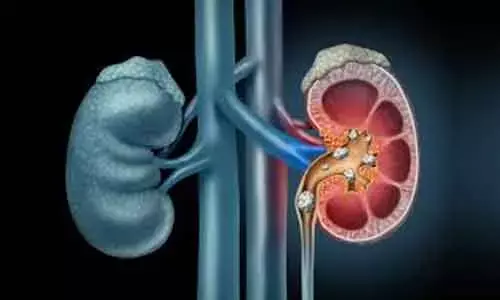- Home
- Medical news & Guidelines
- Anesthesiology
- Cardiology and CTVS
- Critical Care
- Dentistry
- Dermatology
- Diabetes and Endocrinology
- ENT
- Gastroenterology
- Medicine
- Nephrology
- Neurology
- Obstretics-Gynaecology
- Oncology
- Ophthalmology
- Orthopaedics
- Pediatrics-Neonatology
- Psychiatry
- Pulmonology
- Radiology
- Surgery
- Urology
- Laboratory Medicine
- Diet
- Nursing
- Paramedical
- Physiotherapy
- Health news
- Fact Check
- Bone Health Fact Check
- Brain Health Fact Check
- Cancer Related Fact Check
- Child Care Fact Check
- Dental and oral health fact check
- Diabetes and metabolic health fact check
- Diet and Nutrition Fact Check
- Eye and ENT Care Fact Check
- Fitness fact check
- Gut health fact check
- Heart health fact check
- Kidney health fact check
- Medical education fact check
- Men's health fact check
- Respiratory fact check
- Skin and hair care fact check
- Vaccine and Immunization fact check
- Women's health fact check
- AYUSH
- State News
- Andaman and Nicobar Islands
- Andhra Pradesh
- Arunachal Pradesh
- Assam
- Bihar
- Chandigarh
- Chattisgarh
- Dadra and Nagar Haveli
- Daman and Diu
- Delhi
- Goa
- Gujarat
- Haryana
- Himachal Pradesh
- Jammu & Kashmir
- Jharkhand
- Karnataka
- Kerala
- Ladakh
- Lakshadweep
- Madhya Pradesh
- Maharashtra
- Manipur
- Meghalaya
- Mizoram
- Nagaland
- Odisha
- Puducherry
- Punjab
- Rajasthan
- Sikkim
- Tamil Nadu
- Telangana
- Tripura
- Uttar Pradesh
- Uttrakhand
- West Bengal
- Medical Education
- Industry
Delayed decompression increases death risk in patients with obstructing stones: Study

New York: A delay in decompression increases mortality risk (by 29%) in patients with urinary tract infection and obstructing upper urinary tract stones, finds a recent study published in the Journal of Urology. Otherwise, the overall mortality risk is fairly low in such patients.
Obstructive pyelonephritis is a urological emergency that usually requires prompt treatment which is aimed at saving the kidney viability. But there is a limited evidence on the importance of prompt decompression. Therefore, Ojas Shah, Columbia University Vagelos College of Physicians and Surgeons, New York, New York, and colleagues sought to investigate whether delay in decompression is an independent predictor of in-hospital mortality. They also aimed to determine the impact of patient, hospital and disease factors on the likelihood of receipt of delayed vs prompt decompression.
The researchers identified all patients 18 years old or older with ICD-9 diagnosis of urinary tract infection who had either a ureteral stone or kidney stone with hydronephrosis (311,100) using the National Inpatient Sample from 2010 to 2015. Two weighted sample multivariable logistic regression models assessed predictors of the primary outcome of death in the hospital and secondly, predictors of delayed decompression (2 or more days after admission).
Key findings of the study include:
- After controlling for patient demographics, comorbidity and disease severity, delayed decompression significantly increased odds of death by 29% (OR 1.29).
- Delayed decompression was more likely to occur with weekend admissions (OR 1.22), nonwhite race (OR 1.34) and lower income demographic (lowest income quartile OR 1.25).
Although the findings highlight the truly life-saving nature of timely decompression, hospital systems must also seek to understand the barriers limiting the timely delivery of care.
"The increased likelihood of delay associated with weekend admissions, minority patients and lower socioeconomic status suggests opportunities for improvement,"concluded the authors.
The study, "Delayed Decompression of Obstructing Stones with Urinary Tract Infection is Associated with Increased Odds of Death," is published in the Journal of Urology.
DOI: https://www.auajournals.org/doi/10.1097/JU.0000000000001182
Dr Kamal Kant Kohli-MBBS, DTCD- a chest specialist with more than 30 years of practice and a flair for writing clinical articles, Dr Kamal Kant Kohli joined Medical Dialogues as a Chief Editor of Medical News. Besides writing articles, as an editor, he proofreads and verifies all the medical content published on Medical Dialogues including those coming from journals, studies,medical conferences,guidelines etc. Email: drkohli@medicaldialogues.in. Contact no. 011-43720751


